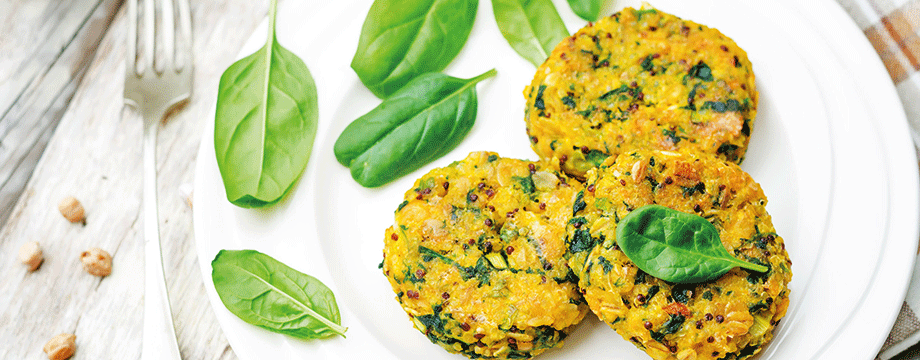Super veggie protein

Rude Health magazine discovers the best vegetarian proteins and how you can incorporate them into your diet
Protein plays an important role in our diet. “Your body requires protein for many different functions such as growth, digestion, energy and vitality, mood and behaviour, performance and recovery and a healthy immune system,” says Oliver McCabe of Select Stores in Dalkey, Co Dublin and author of The Fuel Food Cookbook. “Protein is basically the building block that you use to produce natural chemical reactions to assist the digestion, absorption and metabolism of foods.”
“I wouldn’t say that it is hard to get enough protein from non-meat sources,” says Matt Ronan of Evolv, Enniscorthy, Co Wexford, “but I do think that it takes a more concerted effort to achieve.”
“The secret is to incorporate a good variety of sources of protein such as vegetables, legumes, seeds, nuts, eggs, dairy, seaweed and grains into your diet,” says Oliver McCabe, “then divide them into small, frequent meals and you’ll be focused and fuelled all day long.”
Top veggie proteins
“Great sources of protein are all vegetables and avocados; legumes, beans and lentils; nuts and seeds; eggs and dairy; seaweeds and grains,” says Oliver McCabe. “You can source everything from your local independent health food shop or greengrocer.”
“In terms of grains some obvious choices would be oats, quinoa and amaranth for everyday practicality – also popping some wheat germ onto your morning cereal is a great protein and nutrition boost,” says Matt Ronan. “Including beans, lentils and split peas in your meals does not need to be difficult as they can be blended into soups, cooked in stews or as a simple side vegetable.
“Lots of vegetarians love tofu, seitan and tempeh – they need a little bit of cooking skill to make them interesting, but are a decent way to add protein to a meal,” says Matt. “Nuts and seeds should be regularly included in your diet for their protein content – almonds and sunflower seeds are two of the top performers, but there is a wealth of nutritional goodness in sesame and chia seeds. Making homemade muesli bars is a greatway to use them.
“I include vegan protein powders into my daily smoothie,” says Matt, “there is a terrific choice with everything from hemp, pea, rice, soya, chia and cranberry seed now available.”
The new vegetarian
So what if you decide to stop eating meat, how much vegetarian protein would you need? “This is quite a thorny question and I think is worthy of getting a little bit of professional help,” says Matt Ronan. “A nutritional therapist can tailor their advice to your own individual circumstances, as there is a huge difference between people’s lifestyles”.
“The protein content of each food type varies, although the key is to keep it balanced and as healthy as possible,” says Oliver McCabe. “Eating fresh, organic and unprocessed foods will help deliver good nutrients to your body. The recommendation for adult male non-meat eaters is around 63g per day, and for women it’s 52g per day.”
| Swap | for |
| Meat or fish burgers | Homemade veggie quinoa, mashed bean or sweet potato burgers |
| Dairy milk | Nut/oat/rice/soya milk |
| Dairy cheese | Soya cheese |
| Butter | Nut butter such as almond or peanut |
| Roast meats | Nut roast, quorn roast |
| Mince meat | Quorn mince, lentils or shredded cauliflower |
| Dairy ice cream | Coconut or soya ice cream |
| Cooked chicken | Grilled halloumi cheese |
| Fish | Seaweed |
More Rude Food articles...
Articles from our latest issue...